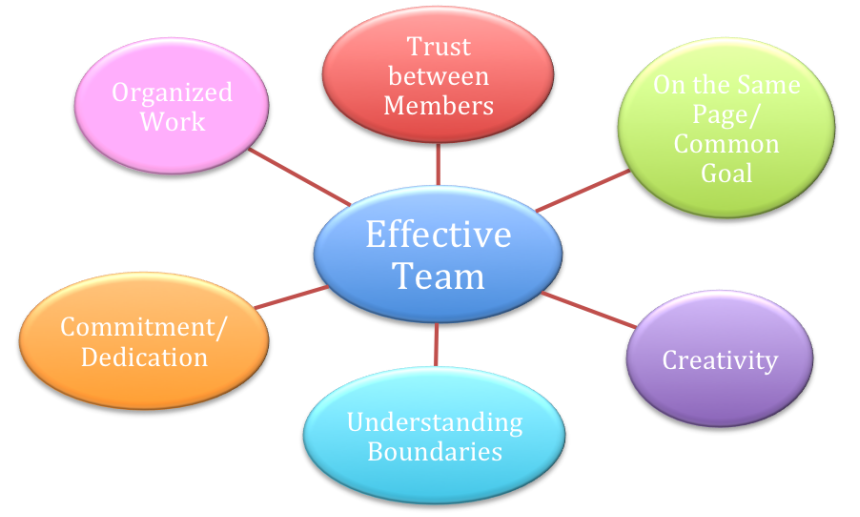Effective Middle Management: A Foundation For Strong Teams And Business Results

Table of Contents
Effective middle management acts as a vital bridge, connecting senior leadership's strategic vision with the day-to-day operations and frontline employees. It involves skilled team leadership, robust performance management, and exceptional communication. This article aims to equip you with the tools and knowledge to cultivate highly effective middle management within your organization.
Developing Strong Leadership Skills in Middle Managers
Building a high-performing team starts with developing strong leadership qualities in your middle managers. This requires a multifaceted approach, focusing on crucial skills that drive both individual and team success.
Fostering Communication & Collaboration
Open and transparent communication is the bedrock of any successful team. Effective middle management necessitates fostering a collaborative environment where every team member feels heard and valued. This involves:
- Regular team meetings: Establishing consistent meeting schedules for updates, brainstorming, and problem-solving.
- Transparent communication channels: Utilizing various methods—email, instant messaging, project management software—to ensure information flows effectively.
- Feedback mechanisms: Implementing regular feedback sessions, both upward and downward, to encourage open dialogue and continuous improvement. This includes 360-degree feedback for comprehensive insights.
- Conflict resolution training: Equipping managers with the skills to proactively address conflicts and foster healthy debate. This includes mediation and negotiation training. Keywords: Team communication, collaborative leadership, feedback strategies, conflict management.
Delegation and Empowerment
Effective middle management isn't about micromanagement; it's about empowering team members. Delegation, when done effectively, fosters individual growth and increases overall team productivity. This requires:
- Setting clear expectations: Defining roles, responsibilities, and deadlines precisely. Using SMART goals (Specific, Measurable, Achievable, Relevant, Time-bound) is crucial.
- Providing necessary resources: Equipping team members with the tools, training, and support they need to succeed.
- Offering support and mentorship: Acting as a guide and resource, not a dictator, while fostering a culture of trust and open communication.
- Establishing performance metrics: Defining clear, measurable metrics to track progress and assess performance against set goals. Keywords: Delegation skills, employee empowerment, accountability, performance goals.
Mentorship and Coaching
Middle managers play a critical role in nurturing talent and driving employee development. By acting as mentors and coaches, they create a culture of continuous growth and improvement. This involves:
- Identifying individual strengths and weaknesses: Conducting regular performance appraisals and seeking feedback to understand individual needs.
- Providing tailored training and development opportunities: Offering relevant training programs, workshops, and mentorship opportunities to enhance skills.
- Offering regular feedback and guidance: Providing constructive feedback, both positive and negative, to support employee growth and identify areas for improvement. Keywords: Mentoring, coaching, employee development, talent management.
Driving Team Performance and Achieving Business Results
Effective middle managers don't just build teams; they drive performance and contribute directly to achieving business objectives. This involves strategic goal setting, process optimization, and fostering a positive work environment.
Setting Clear Goals and Expectations
Aligning team goals with overall business objectives is paramount. Clearly defined, measurable goals drive focus and accountability. This includes:
- SMART goal setting: Using the SMART framework to create achievable and relevant goals.
- Regular progress reviews: Conducting frequent check-ins to monitor progress, address challenges, and make necessary adjustments.
- Performance tracking systems: Implementing systems to track key performance indicators (KPIs) and measure team performance effectively.
- Recognizing and rewarding achievements: Celebrating successes and acknowledging individual and team contributions. Keywords: Goal setting, performance management, KPI's (Key Performance Indicators), performance reviews.
Optimizing Team Processes and Workflow
Streamlining processes and improving workflow efficiency are crucial for maximizing team productivity. This involves:
- Process improvement techniques: Utilizing tools like Lean methodologies or Six Sigma to identify and eliminate bottlenecks.
- Workflow optimization: Streamlining processes to minimize delays and improve efficiency.
- Technology adoption: Leveraging technology to automate tasks, improve communication, and enhance collaboration.
- Efficient resource allocation: Ensuring resources are allocated effectively to support team goals and maximize output. Keywords: Process improvement, workflow management, productivity, efficiency.
Promoting a Positive and Productive Work Environment
A positive work environment is essential for boosting morale, engagement, and ultimately, productivity. This includes:
- Team building activities: Organizing activities that promote camaraderie and improve team cohesion.
- Recognizing employee contributions: Acknowledging and rewarding individual and team achievements.
- Promoting work-life balance: Creating a culture that supports employee well-being and avoids burnout.
- Creating a culture of trust and respect: Fostering an environment where team members feel valued, respected, and supported. Keywords: Team culture, employee engagement, work environment, motivation.
The Role of Effective Middle Management in Organizational Success
Strong middle management isn't merely beneficial; it's transformative. The impact extends far beyond individual teams. Organizations with effective middle management experience:
- Improved employee retention: Creating a supportive environment reduces turnover and improves employee loyalty.
- Increased productivity: Empowered and well-managed teams are significantly more productive.
- Higher profitability: Improved efficiency, reduced turnover, and increased productivity directly contribute to higher profits. This aligns with the initial statistic presented, reinforcing the long-term benefits of investing in effective middle management. Keywords: Organizational success, leadership development, employee retention, productivity improvement, business growth.
Conclusion
Developing effective middle management is an investment in your organization's future. By focusing on developing strong leadership skills, driving team performance, and fostering a positive work environment, you build a foundation for sustainable growth and success. Remember the key takeaways: foster open communication, empower your teams, prioritize employee development, and continuously optimize processes. Invest in effective middle management today and experience the transformative impact on your teams and your entire organization's bottom line. Learn more about building effective middle management teams and unlock the true potential of your workforce! The future of your organization hinges on it.

Featured Posts
-
 Marvels Content Strategy Addressing Fan Concerns And Raising The Bar
May 05, 2025
Marvels Content Strategy Addressing Fan Concerns And Raising The Bar
May 05, 2025 -
 Todays Mma Picks Ufc Des Moines Odds And Expert Predictions
May 05, 2025
Todays Mma Picks Ufc Des Moines Odds And Expert Predictions
May 05, 2025 -
 Verstappen Announces Babys Arrival Before Miami Grand Prix
May 05, 2025
Verstappen Announces Babys Arrival Before Miami Grand Prix
May 05, 2025 -
 Alvarezs Concise Opinion Jake Paul And Boxings Future
May 05, 2025
Alvarezs Concise Opinion Jake Paul And Boxings Future
May 05, 2025 -
 Kentucky Derby 2025 Online Streaming Find The Best Deal And Watch Live
May 05, 2025
Kentucky Derby 2025 Online Streaming Find The Best Deal And Watch Live
May 05, 2025
